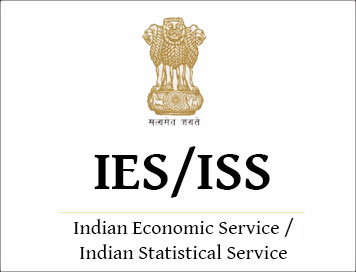(HOT) UPSC Current Affairs 2025 PDF
NEW! The Gist (NOV-2025) | E-BOOKS
UPSC IES-ISS Exam Papers 2018 : Indian Economics

UPSC Indian Economic Service/Indian Statistical Service
Exam Name : UPSC Indian Economic Service/ Indian Statistical Service Exam
Subject : Indian Economics
Year : 2018
Question Paper Specific Instructions
- Please read each of the following instructions carefully before attempting questions :
- There are SIXTEEN questions divided under THREE sections.
- The ONLY question in Section A is compulsory.
- In Section B, SIX out of NINE questions are to be attempted.
- In Section C, FOUR out of SIX questions are to be attempted.
- Candidates should attempt questions/parts as per the instructions given in the sections. The number of marks carried by a question/ part is indicated against it.
- Attempts of questions shall be counted in sequential order. Unless struck off, attempt of a. question shall be counted even if attempted partly.
- Any page or portion of the page left blank in the Question-cum-Answer Booklet must be clearly struck off.
- Candidates are required to write clear, legible and concise answers and to adhere to word limits wherever indicated. Failure to adhere to word limits may be penalized.
- Answers must be written in ENGLISH only.
SECTION A
Q1. Answer all six parts from this section. Answer to each should be in about 100 words: 5x6=30
(a) What do you understand by the Fiscal Responsibility and Budget Management Act ? Explain its importance in brief.
(b) Give a short account of the main components of Pradhan Mantri Krishi Sinchai Yojana.
(c) How can the disinvestment drive be invigorated in the Indian economy?
(d) What are the major social issues related to child labour in India ?
(e) Describe the salient features of National Health Mission in India briefly.
(f)Describe in brief the composition of India's imports during the economic reforms era.
SECTION B
Answer any six questions from this section. Answer to each should be in about 200 words : 15x6=90
Q2.What in your opinion is the present outlook in respect of the industrial performance of the Indian economy for 2018-19 ? What are the favourable factors, risks and challenges in this regard ? 15
Q3. Critically analyse the role of foreign capital in promoting investment in India. 15
Q4.The emerging trend in economic inequality in India does not augur well. Point out the main factors responsible for the trend and suggest appropriate measures to this effect.
Q5.What do you understand by diversification of agriculture in India ? Critically examine the role of agricultural price policy in this context.
Q6. Do you agree that the recent demonetisation in India has not yielded the desired outcomes in respect of curbing the menace of black money ? Give reasons in support of your answer.
Q7.How are India's exports and imports likely to be affected by changes in the real exchange rate of the Indian economy?
Q8. Why has the Government of India considered the introduction of the Goods and Services Tax (GST) to be a great leap forward in the context of the Indian economy? . 15
Q9. Define informal sector employment. What type of vulnerabilities are faced by workers in the informal sector in India ? Point out the required policy measures to ameliorate the social and economic hardships of Indian informal sector workers. 15
Q10. Give a brief account of the composition of the Indian Capital Market and comment on the role of Securities and Exchange Board of India (SEBI) in this regard. 15
SECTION C
Answer any four questions from this section. Answer to each should be in about 300 words: 20x4=80
Q11. Evaluate the liberalisation strategy as adopted in India since 1991 to achieve high economic growth. 20
Q12. Analyse the evolution of deficits and debts in India since the 1980s. What type of measures would you suggest to achieve fiscal balance ?
Q13. Do you subscribe to the view that development of economic and social infrastructure is central to any future strategy of poverty alleviation in India ? Elaborate your answer. 20
Q14. The success of realising the demographic dividend hinges upon the success of Skill India programme, which in turn depends upon the resources allocated to human capital formation - evaluate critically.
Q15. How has the rural-urban migration in India impacted the two sets of areas in social and economic terms ? What policy measures would you prescribe to negate the negative impacts of the said process of migration ? 20
Q16. Distinguish between Wholesale Price Index (WPI) and Producer Price Index (PPI) and explain the way Headline Inflation is measured in India. Also explain the current approach of the Reserve Bank of India (RBI) in maintaining price stability and growth.
Click Here to Download Full Paper
<< Go Back to Main Page
Courtesy: UPSC

